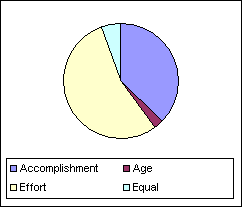The meaning of "gambari"
 Gambari is one of those uniquely Japanese-flavored words you’ll never be able to translate into English for the simple reason that the concept—an effort which is sustained, slightly stubborn, and perhaps just marginally excessive—doesn’t really exist in our culture. Gambari evokes images of a race—not a dash, but a marathon. Gambari assumes that the probability of winning is somewhat low—an underdog flavor—but that there is realistic hope of doing so if all goes well, although that is not the overriding goal, gambari being its own reward. Gambari has a payoff which is often far down the road, a road on which lurk any number of obstacles, large and small.
Gambari is one of those uniquely Japanese-flavored words you’ll never be able to translate into English for the simple reason that the concept—an effort which is sustained, slightly stubborn, and perhaps just marginally excessive—doesn’t really exist in our culture. Gambari evokes images of a race—not a dash, but a marathon. Gambari assumes that the probability of winning is somewhat low—an underdog flavor—but that there is realistic hope of doing so if all goes well, although that is not the overriding goal, gambari being its own reward. Gambari has a payoff which is often far down the road, a road on which lurk any number of obstacles, large and small.
Their appreciation of gambari is why Japanese love marathons of all sorts, including the “Hakone Ekiden” ultramarathon run by teams of college boys every New Year’s, and Olympic marathon champions like Yuko Arimori who won silver in Barcelona in 1992, her tiny figure the very picture of gambari as she huffed and puffed across the finish line. On the economic front, the rebuilding of the Japanese economy in the ‘50s and ‘60s was one of the premier gambaris of all time.
Now a Japanese government poll (see graph) reveals that more than half of all Japanese believe that gambari is what society should reward people for—more than accomplishment, and much, much more than seniority. 53.2% of all respondents thought people’s status and compensation should be based on their level of effort (and this was up from the 51.1% the previous year), while only 34.2% thought accomplishment should be the determinant (down from 34.7%). Meanwhile, anyone who believes Japan still functions under the seniority system needs to wake up: only 1.8% of respondents said age is what should govern status and pay, and a mere 7.2% thought it still did in actuality. Effort beat out accomplishment as the preferred driver for societal rewards in every demographic except for men in their 20s.
Western management whizzes ready to take over Japan, beware. It’s not going to work to just toss cash bonuses at your workers to get them hit your favorite new metrics. Underneath the Japanese appreciation of gambari is a realization, one that lurks hidden even within the souls of Westerners, that we are not in complete control of our destinies. Calling this a form of Buddhist-inspired fatalism doesn’t change the fact that actually it’s true.
Put a different way, when as managers we pay for accomplishment, we can’t be sure what really led to the performance we’re paying for. Was it truly superior execution, or was it favorable conditions, a target which was set wrong, a brilliant strategy set by higher-ups, accomplishments of others on the team, or just chance? And we ignore at our peril the corrosive societal effect from seeing some people rewarded unfairly, to an absurd extent in some cases. There is even an internal negative effect on (most of) the people getting the rewards as they discern the arbitrary nature of the booty they are collecting.
There is doubtless a connection between the Japan’s Buddhist heritage and its preoccupation with gambari. The quintessential Buddhist activity of meditation fits the model of gambari perfectly. And gambari’s emphasis on doing your best and then letting what may happen do so, certainly reflects the Buddhist model of interrelatedness and interdependence as well.

July 24th, 2020 at 10:16
Very nicely worded. I think you’ve captured the essence of Gambari and explained it lucidly.